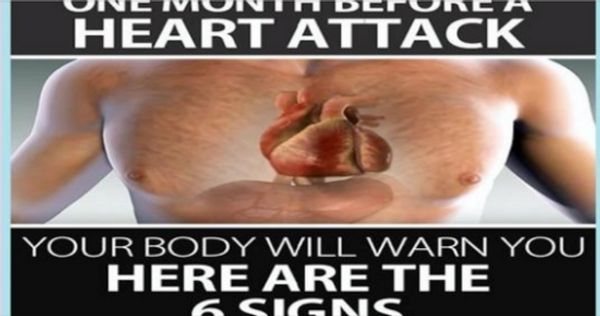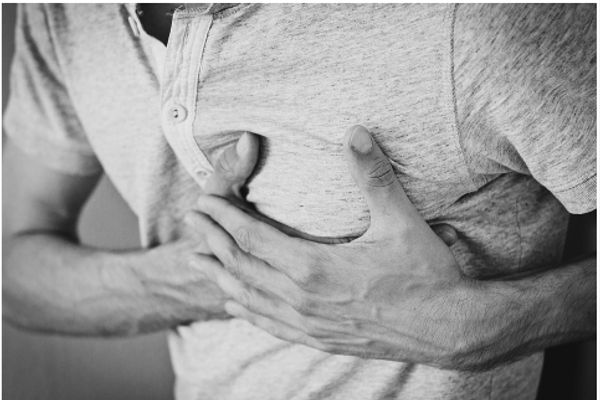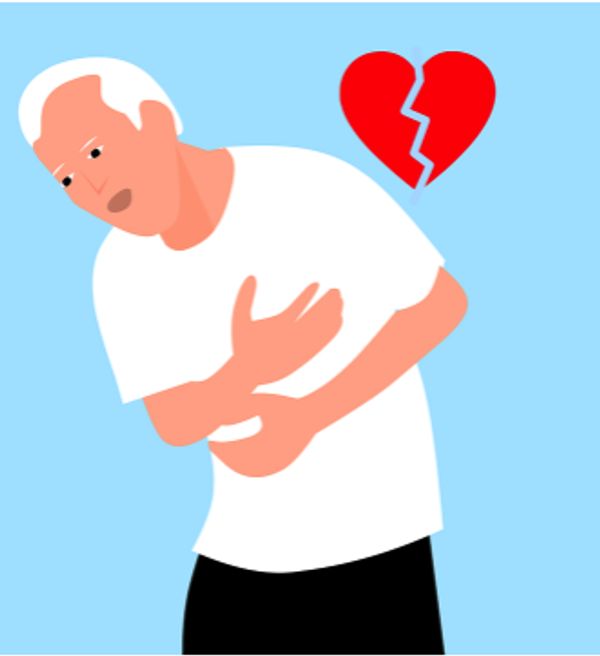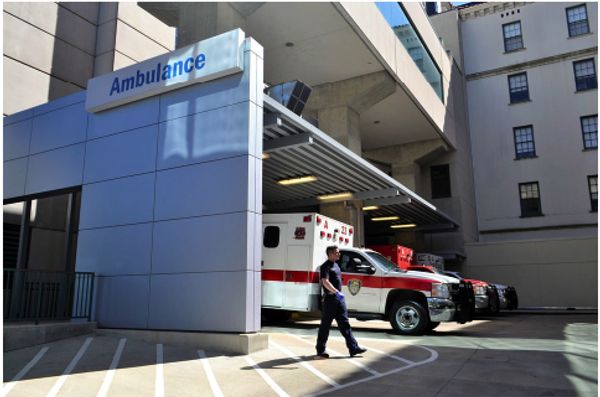
Heart attacks have become alarmingly common in recent years, and they remain the leading cause of death worldwide. Our modern lifestyles and poor eating habits have contributed to this concerning trend. However, there are steps you can take to protect your cardiovascular health and prevent heart attacks. By making simple changes to your lifestyle, such as adopting a healthy diet and managing stress, you can greatly reduce your risk of heart failure.
Early Warning Signs
Your body often sends warning signals before a heart attack occurs. Recognizing these symptoms can be crucial for timely intervention. Here are the signs that typically appear about a month before a heart attack:
- Insufficiency of oxygen: If you find it difficult to breathe, it may be an indication that your heart is not receiving enough oxygen. Promptly consult your doctor in such cases.
- Cold and flu symptoms: Unexplained cold and flu-like symptoms can be common in individuals who are about to have a heart attack.
- Chest pressure: Experiencing pressure or tightness in your chest could be a clear warning sign of an impending heart attack. It is essential to seek medical attention immediately.
- Fatigue and weakness: When the arteries narrow, essential nutrients and oxygen fail to reach your muscles, leading to fatigue and weakness. If you feel constantly tired or weak, it is advisable to consult a healthcare professional.
- Dizziness and cold sweats: Inadequate blood flow to the brain can result in dizziness and cold sweats, affecting your overall brain function.
- Persistent tiredness: If you continue to feel lethargic and drowsy even after rest or sleep, it may indicate a problem with blood flow to your heart.
Recognizing and addressing these symptoms can significantly reduce the risk of a heart attack. When blood flow to the heart is blocked, a heart attack occurs. The most common cause of this blockage is the buildup of fat, cholesterol, and other substances in the arteries, forming plaque. A plaque can rupture and cause a blood clot, obstructing blood flow and damaging or destroying parts of the heart muscle.
Identifying Symptoms
Being aware of the common signs and symptoms of a heart attack is crucial for seeking help when needed. Look out for the following:
- Pain or discomfort in the chest, arms, neck, jaw, or back.
- Nausea, indigestion, heartburn, or abdominal pain.
- Difficulty breathing.
- Cold sweats.
- Fatigue.
- Sudden dizziness or lightheadedness.
Please note that the symptoms of a heart attack can vary from person to person. Some may experience mild pain, while others may suffer from severe agony. Some individuals may have no symptoms at all. It is important to remember that even without prior symptoms, a heart attack can occur abruptly. However, many individuals do experience warning signs in the hours, days, or weeks leading up to a heart attack. Recurrent chest pain or pressure, known as angina, could be an initial sign. If you experience such symptoms, it is advisable to consult a healthcare professional.
Acting Quickly
In the event of a suspected heart attack, taking immediate action is crucial. Unfortunately, many individuals delay seeking help due to a lack of awareness about the key indications and symptoms. Here’s what you should do:

- Call for emergency medical assistance: Dial 911 or your local emergency number without hesitation. If you are unable to access emergency medical care, ask someone to drive you to the nearest hospital.
- Take prescribed medication: If your doctor has prescribed nitroglycerin or aspirin, take it as directed while you wait for help. Nitroglycerin helps relieve chest pain, while aspirin can prevent further damage by preventing blood clotting. However, it is important to only take aspirin if advised by a healthcare professional, as it may interfere with other medications.
- Helping someone having a heart attack: If you encounter someone who is unconscious and you suspect they are having a heart attack, call 911 immediately. Check if the person is breathing and has a pulse. If not, start performing CPR by administering chest compressions or rescue breathing if you have been trained in CPR.
Understanding the Causes and Risks
A heart attack occurs when one or more of your coronary arteries become blocked. This blockage is often caused by the buildup of fatty deposits, including cholesterol, over time, which narrows the arteries (known as atherosclerosis). The most common cause of heart attacks is coronary artery disease. Additionally, a spasm of a coronary artery or infection with COVID-19 can also lead to a heart attack.
Several factors increase the risk of a heart attack, including age, tobacco use, high blood pressure, high cholesterol or triglyceride levels, obesity, diabetes, lack of physical activity, stress, use of illegal drugs, and certain medical conditions. It is important to address these risk factors to prevent a heart attack.
Take Control of Your Heart Health
While a heart attack can be a life-threatening event, it is never too late to take steps to prevent another one. Along with prescribed medications, adopting a heart-healthy lifestyle is crucial. Here are some recommendations:

- Maintain a healthy weight by following a balanced diet.
- Quit smoking and avoid secondhand smoke.
- Engage in regular physical exercise to improve heart health and lower blood pressure.
- Manage stress effectively through relaxation techniques and healthy coping mechanisms.
- Control conditions such as high blood pressure, high cholesterol, and diabetes through medication and lifestyle changes.
By listening to your body, recognizing the warning signs, and making positive changes in your life, you can significantly reduce the risk of a heart attack and protect your cardiovascular health. Remember, prevention is key, and taking proactive steps towards a healthier lifestyle can make all the difference.




